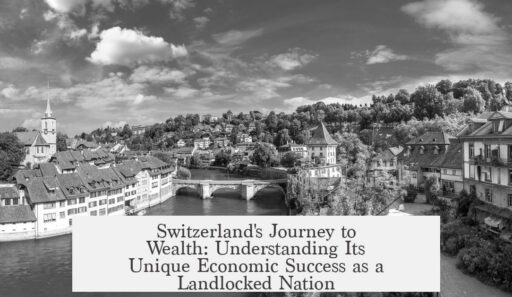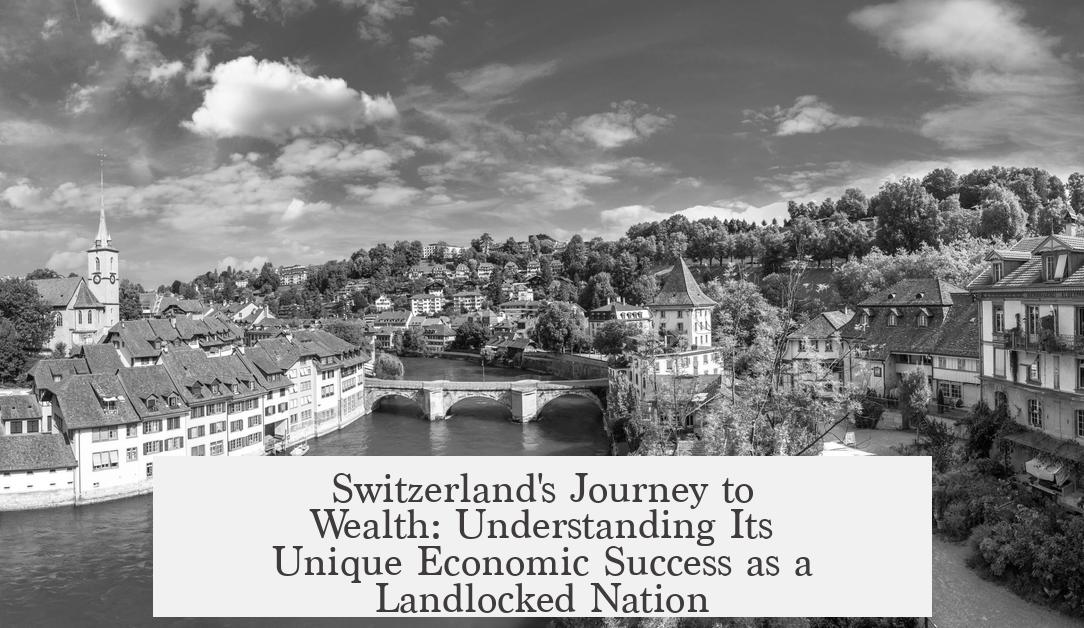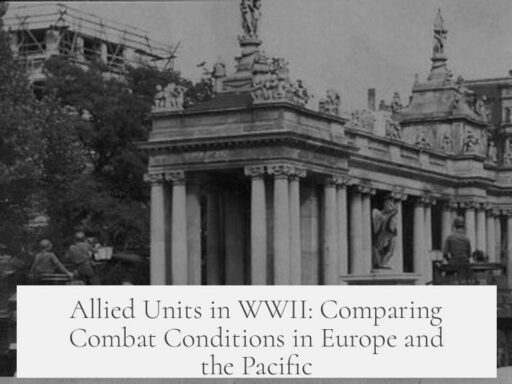Switzerland stands out as one of the few wealthy landlocked countries in the world due to a unique combination of historical neutrality, strategic economic policies, strong governance, and human capital development.

Historically, Switzerland was far from wealthy. Until the mid-19th century, the region that now forms modern Switzerland was poor and underdeveloped, resembling other landlocked countries with challenging geography and limited natural resources. Agriculture was weak, and poverty drove many Swiss to emigrate in search of better opportunities. This historical context emphasizes that wealth does not come naturally from mere geography or resource endowment.
A cornerstone of Swiss success lies in its long-standing neutrality. Switzerland avoided involvement in major conflicts for centuries, including both World Wars. This neutrality shielded the country from widespread physical destruction and maintained internal stability. Stability, in turn, created a secure environment for economic growth. While neighboring countries grappled with war damage and economic disruption, Switzerland remained intact and ready to serve as a peaceful intermediary and financial center.

After World War II, Switzerland enjoyed a particularly advantageous position. Its industry remained undamaged while surrounding nations like Italy, France, and Germany faced massive rebuilding efforts. This created strong demand for Swiss goods, technologies, and financial services. The country’s proximity to recovering European economies brought substantial benefits, enhancing its manufacturing and service sectors within a stable political framework.
Swiss governance also contributed fundamentally to economic success. In 1847, a brief civil conflict resulted in liberal political dominance. Unlike some neighboring monarchies, Switzerland’s government became led by professionals—entrepreneurs, lawyers, teachers, and engineers—promoting policies favorable to commerce, innovation, and social cohesion. This liberal tradition fostered an environment for economic and social modernization over almost a century.

The lack of natural resources actually pushed Switzerland to focus on developing its human capital. Early investments in education allowed the country to cultivate skilled labor and innovative industries. This approach helped build a diverse economy spanning manufacturing, precision engineering, pharmaceuticals, and services. Such diversity made Switzerland resilient against sector-specific downturns. The emphasis on quality education and innovation remains central to its economic structure today.
The banking sector became another pillar of Swiss wealth. Swiss banks gained a global reputation for stability and privacy, attracting vast amounts of capital from around the world. This financial influx fueled investment in various industries and infrastructure. While not without controversy—due to associations with problematic funds—the “safe haven” status of Swiss banks reinforced the country’s economic strength and international influence.
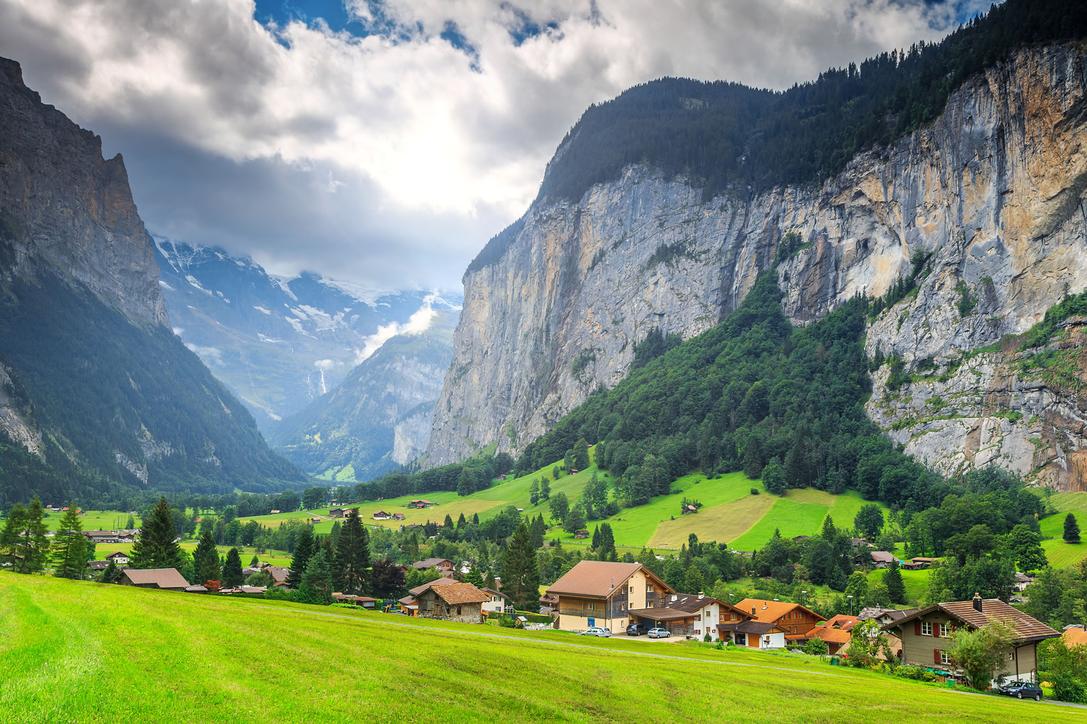
Overall, Switzerland exemplifies turning geographic and resource limitations into advantages. Through strategic neutrality, liberal governance, human capital investments, and strong financial institutions, Switzerland has built a wealthier, stronger economy than most landlocked countries. The country’s history reflects adaptability and pragmatic economic planning more than luck alone.
- Switzerland was historically poor but avoided war devastation through neutrality.
- Post-WWII, it benefited from undamaged industry amid neighboring reconstruction.
- Liberal political leadership supported business-friendly policies early on.
- Investment in education drove a diversified, innovative economy.
- Swiss banks attracted global capital through stability and secrecy.
- The country transformed geographical and resource limits into economic strengths.
How Come Switzerland Is One of Very Few Wealthy Landlocked Countries in the World?
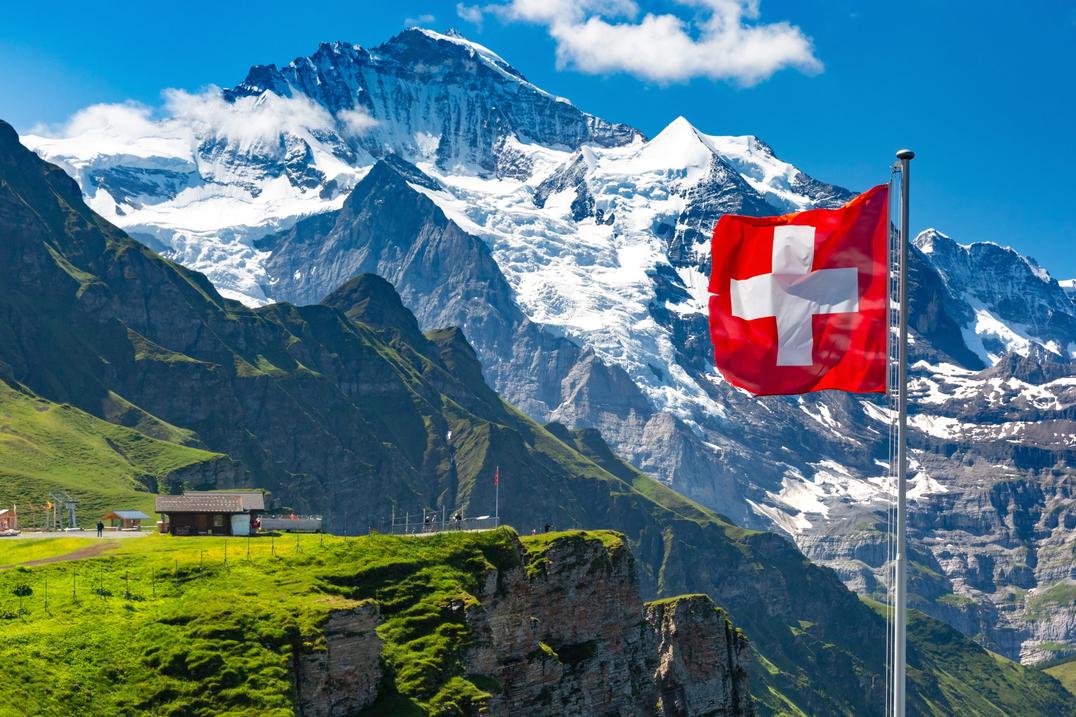
Switzerland’s wealth despite being landlocked boils down to a clever mix of neutrality, stability, smart governance, education, and a knack for turning disadvantages into strengths. But wait—this rich alpine nation wasn’t always swimming in prosperity. Its story is less about overnight success and more about patient, strategic growth that transformed it from poor pastures into one of the world’s most robust economies.
Let’s dive into how Switzerland defies the typical landlocked-country woes and zoom into the surprising facts behind its financial prowess.
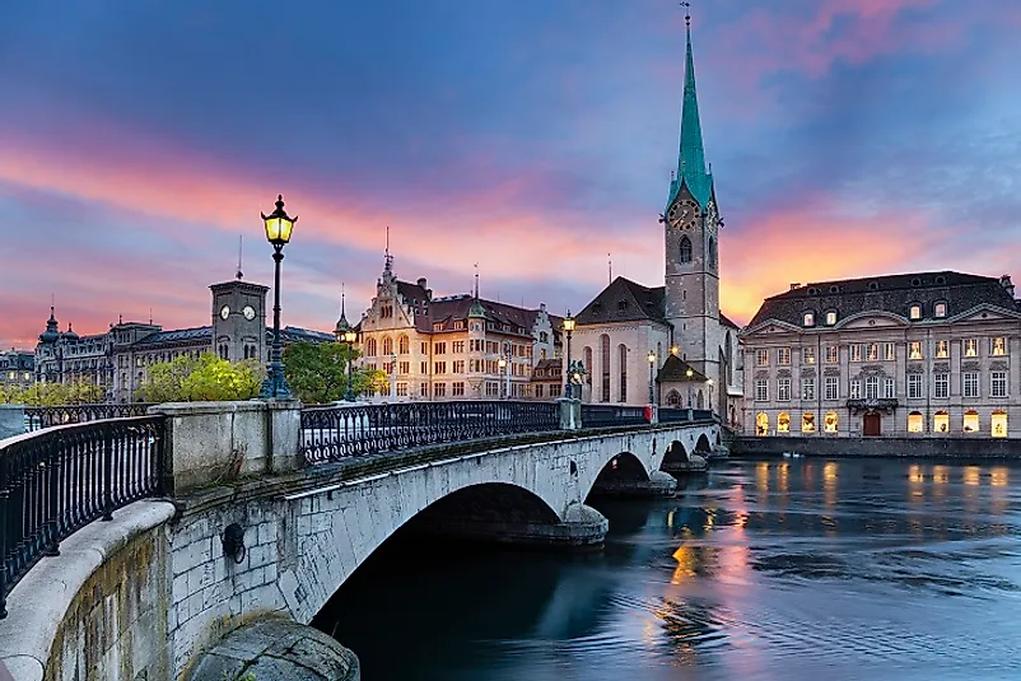
Switzerland’s Humble Beginnings: A History of Poverty
Believe it or not, what we now call Switzerland was far from an economic powerhouse for most of its history. The modern nation, established in 1848, was one of Europe’s poorest regions well into the 19th century.

Picture a country with tough mountains, little arable land, and zero natural resources. Not exactly the dream recipe for wealth. So bad was the struggle that in the early 1800s, hundreds of thousands of Swiss folks packed up and emigrated to escape hunger and poverty.
This hardship actually fits the common narrative for landlocked countries with rough terrain. The economic outlook was bleak back then, but all that was about to change.
Neutrality and Stability: The Swiss Secret Sauce
Switzerland’s famous neutrality isn’t just a political stance; it’s an economic advantage. While World Wars I and II razed most of Europe, the Swiss remained untouched—not a single bomb dropped on those serene Alps.
This peace preserved their infrastructure and industries, letting them carry on with business as usual while neighbors were busy rebuilding. Stability in government and society naturally attracts investors and businesses—no one invests in chaos.
“Neutrality isn’t just a policy, it’s an economic strategy.”
Post-War Economic Advantage
After World War II, Switzerland’s undamaged industries were a gold mine. Its neighbors—Italy, France, and Germany—were wrecked and desperate for goods and services to rebuild.
Switzerland stepped in, exporting machinery, chemicals, and precision tools to fuel Europe’s recovery. This timing was perfect. The demand created a sustained economic boom that fueled jobs, prosperity, and innovation.
Liberal Governance: From Civil War to Economic Boom
Before Switzerland went modern, it had a quick civil war in 1847. The liberals won, and their victory changed the country’s political landscape for the next century. Unlike its neighbors still ruled by monarchs, Switzerland was led by merchants, educators, lawyers, and entrepreneurs.
This new leadership type focused on supporting business, trade, and innovation—ingredients for economic growth. For decades, these liberal policies cultivated a fertile ground for business-friendly environments and advanced infrastructure.
Investment in Education and Human Capital
Switzerland might lack coal or oil, but it doesn’t lack brains. It led the way by investing heavily in education and training its citizens.
By focusing on its people, Switzerland sped up the rise of manufacturing, which later morphed into high-value services, like finance and pharmaceuticals. This created a diverse economy, less vulnerable to crises than countries dependent on a single sector.
Here’s a fact that flips the script: not having natural resources pushed Switzerland to focus on its greatest asset—its people.
Swiss Banks and Financial Secrecy: A Double-Edged Sword
No story about Swiss wealth is complete without mentioning the banks. Known for their secrecy and stability, Swiss banks attracted vast amounts of money globally.
While some deposits came from clean sources, others arrived under murkier circumstances—think Nazi gold or dictators’ stashes. Either way, the influx of capital fueled economic development and helped finance the country’s future.
Turning Weaknesses Into Strengths
So what’s the secret? Switzerland didn’t just get lucky. It turned its disadvantages—lack of resources, landlocked geography, rough terrain—into advantages.
This “Swiss way” involves embracing neutrality to maintain peace, creating political stability, focusing on education, fostering liberal policies, leveraging financial services, and timing its industrial growth perfectly.
What Can Other Landlocked Countries Learn?
- Peace and stability are invaluable for economic growth.
- Investment in human capital can compensate for lack of natural resources.
- Diversified economies survive crises better than specialized ones.
- Strategic political governance shapes long-term prosperity.
Switzerland’s journey proves that being landlocked isn’t a sentence to poverty. Instead, with smart policies and a focus on education and neutrality, landlocked nations can thrive.
In Conclusion
Switzerland’s wealth is not just about location or luck. It’s about history, policy, education, and making the most out of what seemed like a geographic trap. From hunger-stricken peasants to a financial haven, the Swiss crafted a remarkable success story.
Next time someone says landlocked means stuck in poverty, bring up Switzerland. The Alps might block the sea, but the Swiss found ways beyond mountains to reach the top.
Why did Switzerland remain neutral during major wars, and how did this affect its wealth?
Switzerland avoided participation in international wars for centuries. This neutrality preserved its infrastructure from destruction, ensuring economic stability. Stability, in turn, allowed the country to grow wealthier while neighbors rebuilt after wars.
How did Switzerland benefit economically after World War II despite being landlocked?
After World War II, Switzerland’s industries were intact, unlike nearby countries. Neighboring nations like Germany, Italy, and France needed goods and services during reconstruction. This demand boosted the Swiss economy significantly.
In what way did Swiss governance contribute to its economic success?
Switzerland’s liberal government ruled for nearly 100 years starting in 1848. Leaders included merchants, entrepreneurs, and professionals. This governance encouraged innovation, business, and economic growth, setting it apart from monarchies in the region.
How did Switzerland’s lack of natural resources impact its development?
Without natural resources, Switzerland invested heavily in education and human capital. This led to a skilled workforce that supported a diverse economy. The focus on education helped build strong manufacturing and service sectors.
What role did Swiss banking and financial secrecy play in Switzerland’s wealth?
Swiss banks became known as safe havens due to financial secrecy and political stability. This attracted large amounts of capital from different sources, contributing to the country’s financial sector growth and overall wealth.
